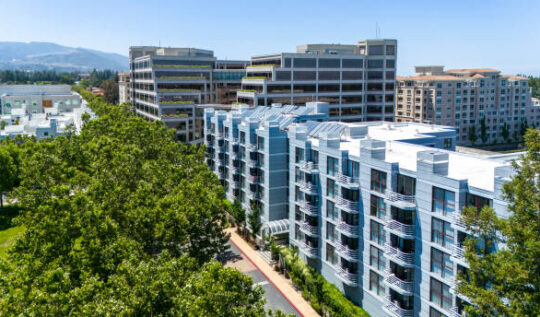Top 10 Construction Management Practices Every LA Contractor Should Know
Building in Los Angeles isn’t easy. Between permits, zoning rules, tight deadlines, and rising costs, there’s a lot to juggle. Whether you’re a contractor working on a new apartment building or a custom home, how you manage your project makes all the difference.
Table of Contents
ToggleAt JDJ Consulting Group, we’ve worked with builders across LA County and seen what separates smooth projects from stressful ones. It often comes down to a few key practices—things that help you stay organized, avoid delays, and keep your budget on track.
In this guide, we’re breaking down the 10 best management practices every LA contractor should know. These are practical tips you can actually use—on real projects, with real results.
Let’s get into it.
Construction Project Timeline
- Step 1: Preconstruction Planning
- Step 2: Permitting and Design Coordination
- Step 3: Site Preparation and Procurement
- Step 4: Construction and Monitoring
- Step 5: Final Inspection and Project Closeout
Start Projects With Early Contractor Involvement
Bringing your contractor into the project early—before the design is complete—can prevent many problems. This is called Early Contractor Involvement (ECI). It’s a smart move, especially in cities like Los Angeles where building rules are strict.
At JDJ Consulting Group, we see how early teamwork helps. When contractors, architects, and planners work together from the start, projects run smoother. You avoid big design changes later, which saves time and money.
Why Early Involvement Works
You can solve design issues before construction starts.
Contractors help suggest materials and building methods that work best.
Planning early avoids delays with permits and zoning.
Table: Benefits of Early Contractor Involvement
| Benefit | How It Helps in LA |
|---|---|
| Fewer Changes | Prevents design errors later |
| Quicker Permits | Aligns design with LA codes |
| Cost Savings | Cuts expensive rework |
| Better Planning | Everyone stays on the same page |
JDJ often guides this early process. We act as the bridge between the team and city offices. This keeps your project moving forward from day one.
Use Lean Construction to Cut Waste and Save Time
Lean construction is all about working smarter. It helps you reduce waste—like delays, extra materials, and bad planning. You use what you need, when you need it.
In LA, construction can get costly fast. That’s why lean methods are useful. JDJ Consulting helps contractors set up lean plans to avoid common problems before they happen.
Lean Ideas That Work
Just-in-Time Delivery: Get materials only when needed.
Pull Planning: Start with the end goal and plan backwards.
Daily Team Huddles: Stay on track with short, clear updates.
Table: Common Construction Waste and Lean Fixes
| Waste Problem | Lean Solution |
|---|---|
| Too Many Materials | Just-in-Time Delivery |
| Workers Waiting | Better Scheduling |
| Rework | Early Team Reviews |
| Long Delays | Clear Daily Check-ins |
By using lean tools early, you reduce confusion. You also make better use of time and money. JDJ helps teams plan this out before the first hammer swings.
Use Value Engineering to Lower Costs Without Losing Quality
Value engineering (VE) is a smart way to improve your project without going over budget. It means looking at how things are designed and asking: “Can we do this better or for less?”
This works well in Los Angeles, where labor and materials can be expensive. At JDJ, we work with clients and contractors to suggest design options that cost less but still meet the same goal.
What You Can Improve With VE
Pick finishes that look good but cost less.
Change layouts to save on framing or plumbing.
Use simpler designs that take less time to build.
Real Benefits
You get the same result, but for less money.
Projects move faster because the design is simpler.
You stay within code—and within budget.
This is a tool we often use during pre-construction planning. It’s easier (and cheaper) to make changes before plans are submitted for permits. JDJ can help review these options early so your project stays on track.

Know the Zoning, Permits, and Entitlement Process in Los Angeles
In Los Angeles, rules around land use are strict and often change. Before a shovel hits the ground, you need to know if your project meets local zoning laws. This includes height limits, density, parking, and other use restrictions.
Getting permits and entitlements approved in LA can take months—sometimes longer. Missing a small step can lead to delays or rejections. At JDJ Consulting Group, we specialize in guiding contractors through this process.
Key Terms to Know
Zoning: Determines how land can be used (residential, mixed-use, commercial, etc.).
Entitlements: Legal approvals that allow the project to move forward.
Permits: City-issued documents needed before construction can begin.
What Can Go Wrong Without Proper Planning?
Submitting incomplete plans can delay your timeline.
Ignoring zoning codes can result in redesigns or fines.
Missing CEQA rules can require added environmental review.
How JDJ Helps:
We check for zoning conflicts before the city does.
We handle submittals, hearings, and community input.
We help fast-track approvals by preparing clean, code-compliant applications.
Understanding this process saves you time and money. It also builds trust with investors, neighbors, and city planners.
Project Focus Areas: Scheduling, Cost Control, Safety, Compliance
Screen All Subcontractors Before They Step on Site
Your subcontractors can make or break a project. A good one keeps things moving. A bad one causes delays, poor work, and budget problems. That’s why prequalifying every subcontractor is critical—especially in the LA construction market.
Don’t wait until problems show up on site. Check everything upfront: licenses, insurance, OSHA records, and past work history.
What to Look For
Is their license valid and up to date?
Do they have proper insurance and bonding?
Have they worked on similar projects?
Are they familiar with LA rules, labor laws, and safety codes?
JDJ’s Tip:
Use a simple pre-qualification checklist before contracts are signed. Here’s an example.
Sample Subcontractor Checklist
| Requirement | Why It Matters |
|---|---|
| Valid CA License | Confirms legal status |
| Workers’ Comp Insurance | Protects against jobsite claims |
| Bonding Capacity | Ensures financial strength |
| LA Permit Knowledge | Reduces learning curve on local codes |
| Past Project Reviews | Helps predict work quality |
At JDJ, we help contractors set up systems for screening and hiring subcontractors the right way. This builds strong teams and avoids issues that could derail your timeline.
Use Construction Software and Digital Tools to Stay Organized
Digital tools are no longer optional—they’re essential. With so many moving parts in a construction project, software keeps everything on track.
From budget tracking to scheduling and real-time updates, software saves time, reduces mistakes, and improves communication.
Tools That Make a Difference
Project Management Platforms like Procore or Buildertrend help with timelines, RFIs, and daily reports.
BIM (Building Information Modeling) allows better planning and clash detection before construction begins.
Permit Tracking Tools show where you are in the review process.
Benefits of Going Digital
Access project updates from anywhere
Track costs and changes in real time
Avoid miscommunication between teams
JDJ Consulting helps clients choose the right software and set up systems that match their project size and needs. We also help with training so teams can hit the ground running.
Using the right tools keeps your project flowing smoothly—especially in a high-demand market like LA.
Build a Realistic Schedule and Budget From the Start
A successful project starts with solid planning. That means setting a schedule and budget that are realistic—not just ideal.
Many LA contractors run into delays because they underestimate timelines, skip buffer periods, or don’t plan for city reviews. A few weeks lost to zoning or inspections can throw off the whole project.

Smart Planning Tips
Use critical path scheduling to identify must-hit tasks.
Add time for city approvals and permit reviews.
Budget for rising material or labor costs in LA.
What JDJ Offers:
We build full preconstruction schedules that factor in design, permitting, and agency reviews. We also help track costs and update clients in real-time—keeping everyone aligned from day one.
Manage Project Risks Before They Become Problems
Every job site comes with risk—some more than others. Whether it’s delays from the city, environmental challenges, or design changes, risk is part of construction.
Los Angeles adds unique risks like earthquakes, hillside builds, and tight urban spaces. Ignoring them early on can lead to major setbacks.
Common Risks LA Contractors Face
Long city review periods
Design errors or last-minute changes
Permit complications or code issues
Unexpected site conditions (soil, utilities, etc.)
Risk Management Best Practices
Identify risks in the preconstruction phase
Assign team members to handle each issue
Build buffer time and cost into your plan
JDJ helps clients prepare full risk plans during the planning process. We flag issues early—often before architects or engineers notice them. This prevents last-minute panic and costly mistakes.
Need Help With Construction Planning in LA?
JDJ Consulting offers expert permit guidance, land use strategy, and construction management for your LA project.
Get a Free ConsultationMake Site Safety and Quality Control a Daily Habit
Site safety and quality control aren’t just about following rules—they protect your team, your schedule, and your reputation.
Los Angeles has strict OSHA enforcement and inspection standards. Keeping your site safe also helps avoid shutdowns, delays, and lawsuits.
Ways to Stay Safe and Organized
Hold daily safety meetings before work begins
Use checklists for inspections and walk-throughs
Train your team on jobsite hazards and emergency steps
Quality Control Reminders
Review plans with all subcontractors before work begins
Document every inspection and correction
Schedule mid-project walk-throughs to catch mistakes early
JDJ works with contractors to create quality and safety processes that fit their project type. It’s easier to do things right the first time than fix problems later.
Train Your Team and Keep Them Engaged
Construction is a team sport. A skilled, trained crew can finish a project faster, safer, and with fewer errors.
But LA contractors are facing a labor shortage. That’s why training matters now more than ever. Whether it’s new tech, updated codes, or site safety—your team needs to stay sharp.
Smart Ways to Build a Strong Team
Offer monthly training on tools, safety, or code changes
Pair junior workers with experienced mentors
Reward crews for hitting safety and quality goals
At JDJ, we believe people are a project’s biggest asset. We work with developers and contractors to build jobsite cultures that encourage growth, teamwork, and responsibility.
Bonus Tip: Go Green and Build Smart
Los Angeles is pushing hard for energy-efficient and sustainable construction. Green building isn’t just a trend—it’s becoming a requirement.
Whether you’re building ADUs, mixed-use spaces, or large housing projects, using smart materials and efficient systems adds long-term value.
Green Features That Make a Difference
Energy-efficient HVAC and lighting
Solar panels or EV chargers
Low-flow plumbing and smart water systems
Eco-friendly insulation and paint
JDJ helps builders plan sustainable designs that meet Title 24, LEED, or city energy codes. We also guide clients through incentive programs that can lower project costs.

Conclusion: Start Smart, Build Better
Managing a construction project in Los Angeles takes more than hard work—it takes strategy. The best contractors aren’t just builders. They’re planners, problem solvers, and decision-makers.
By using these 10 best practices, you’ll build projects that are safer, faster, and more profitable. JDJ Consulting Group is here to help you lead the way—from planning and permits to final walk-throughs. Call our consulting office at (818) 233-0750 or contact us online.
Ready to take your next project to the next level? Book your free consultation with JDJ Consulting Group today.
Questions About Construction Management Practices
FAQ: What is construction management and why is it important in Los Angeles?
Construction management is the process of planning, coordinating, and overseeing a building project from start to finish. In Los Angeles, where zoning laws, permits, and site conditions vary widely, strong management helps keep projects on track.
Key benefits of construction management:
Reduces delays and costly mistakes
Improves communication across teams
Ensures compliance with local building codes
Controls budget and timeline
FAQ: How do LA contractors handle complex permitting processes?
Permitting in Los Angeles can be complicated due to strict regulations and long review times. Contractors usually work with consultants or expediters to keep the process moving.
Steps to manage LA permitting:
Review zoning codes before design
Prepare a complete and accurate application
Respond quickly to plan check comments
Use permit expediters or consulting groups like JDJ
FAQ: What are early contractor involvement benefits?
Early contractor involvement means bringing a builder into the project before final design. This approach improves planning and avoids costly changes during construction.
Benefits include:
Better cost estimates
Easier coordination with architects and engineers
Fewer design changes later
Shorter construction timelines
FAQ: What is lean construction and how does it reduce waste?
Lean construction is a method focused on reducing waste and improving workflow on a job site. It’s especially useful in dense or fast-paced markets like Los Angeles.
Lean construction practices include:
Just-in-time delivery
Daily crew huddles
Pull planning (working backward from deadlines)
Tracking tasks visually with dashboards or boards
FAQ: How does value engineering help LA contractors save money?
Value engineering reviews building systems to find cost-effective alternatives without reducing performance. It’s used early in the project to avoid design and budget issues.
Where VE helps most:
Mechanical systems
Structural changes
Material selections
Simplifying layouts
FAQ: How do I choose reliable subcontractors for my LA project?
Choosing the right subcontractors is key to project success. Poor hires lead to delays, rework, and safety risks.
Checklist to prequalify subs:
Valid California license
Up-to-date insurance
Local experience
Good safety record
Past client references
FAQ: What are common construction risks in Los Angeles?
LA projects face many unique risks due to local codes, land conditions, and market demand.
Common LA construction risks:
Permit delays
Seismic (earthquake) issues
Community opposition
Tight urban site access
Rising material costs
FAQ: How can I improve site safety and reduce accidents?
Site safety requires daily attention and team-wide commitment. Training and planning make a big difference.
Ways to boost site safety:
Daily toolbox talks
Regular inspections
Clear emergency procedures
Up-to-date safety gear
Team training on OSHA standards
FAQ: What tools should LA contractors use for construction management?
Digital tools streamline project tracking and communication. They help with everything from schedules to cost control.
Popular tools include:
Procore for project management
PlanGrid for drawings and markups
BIM tools for design coordination
Permit tracking dashboards
FAQ: How do I build a more productive construction crew?
A productive team starts with hiring and grows with training. LA’s labor market is competitive, so retaining good workers is key.
Tips to boost productivity:
Offer regular training
Set clear job roles
Provide feedback and recognition
Encourage collaboration
Promote safety and efficiency
FAQ: What is the role of JDJ Consulting in construction projects?
JDJ Consulting Group helps contractors and developers plan, permit, and manage construction projects in Los Angeles. We focus on problem-solving before the problems start.
Our services include:
Zoning and land use consulting
Permit expediting
Preconstruction planning
Value engineering and risk planning
Construction management support
FAQ: Why do LA contractors need construction consultants?
A construction consultant adds value by helping avoid delays, manage compliance, and plan smarter. In LA, where regulations are strict, a consultant can be the difference between delay and success.
Why consultants matter:
Deep knowledge of LA building codes
Faster permit approvals
Expert project planning
Coordination between teams and agencies





